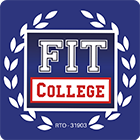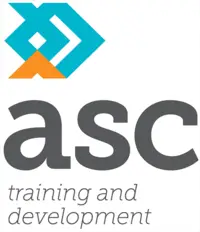
Popular courses in Melbourne
Certificate IV in School Based Education Support
- There are no mandated entry requirements.



Certificate III in School Based Education Support
- There are no mandated entry requirements.
 Foundation Education
Foundation Education
Certificate IV in English Language Teaching (TESOL)
- There are no mandated entry requirements.
 Melbourne City Institute of Education
Melbourne City Institute of Education
Diploma of Vocational Education and Training
- Those entering this qualification must demonstrate current VET skills and knowledge relevant to the specialisation chosen in this qualification.
- Those entering this qualification must demonstrate current VET skills and knowledge relevant to the specialisation chosen in this qualification.
- At least 23 months work experience in a related field
- At least 3 months work experience in a related field
- Those entering this qualification must demonstrate current VET skills and knowledge relevant to the specialisation chosen in this qualification.


Certificate IV in Training and Assessment
- Evidence of relevant skills, knowledge and employment experience








Diploma of Music
- There are no mandated entry requirements.


Bachelor of Arts (History)
- There are no mandated entry requirements.






Bachelor of Education (Primary)
- There are no mandated entry requirements.




Bachelor of Education (Secondary)
- There are no mandated entry requirements.


Bachelor of Education (Health and Physical Education)
- There are no mandated entry requirements.
 Deakin University
Deakin University
Master of Teaching (Primary)
- There are no mandated entry requirements.








Bachelor of Science (Physics)
- There are no mandated entry requirements.







Diploma of English Language Teaching (TESOL)
- There are no mandated entry requirements.


Bachelor of Arts (Classics and Ancient History)
- There are no mandated entry requirements.
 La Trobe University
La Trobe University
Bachelor of Arts (Education)
- There are no mandated entry requirements.
 Deakin University
Deakin University
Bachelor of Arts (English)
- There are no mandated entry requirements.
 La Trobe University
La Trobe University
Bachelor of Arts (English Literature)
- There are no mandated entry requirements.
 Deakin University
Deakin University
Bachelor of Arts (Fine Arts)
- There are no mandated entry requirements.
 RMIT University
RMIT University
Bachelor of Arts (French Studies)
- There are no mandated entry requirements.
 The University of Melbourne
The University of Melbourne
Bachelor of Arts (Geography)
- There are no mandated entry requirements.
 The University of Melbourne
The University of Melbourne
Frequently Asked Questions
Yes, there are course providers who offer 20 qualification(s) in Melbourne. Find a course provider near you. Once you make an enquiry, a course advisor will get in touch to discuss your study options and course fees.
Written by Courses.com.au Team
There are several campuses within the Melbourne area that provide secondary education training. The nearest campus is located right in the center of Melbourne. You can also study a secondary education course through online learning. Find a course provider that best suits your needs.
Written by Courses.com.au Team
Potential job roles within secondary education includes science teacher, mathematics teacher or music teacher (to name a few). Browse related occupations to find a career that suits your needs.
Written by Courses.com.au Team
Further reading


Certificate III in Pathology Collection: Everything You Need to Know
10th February 2025)
